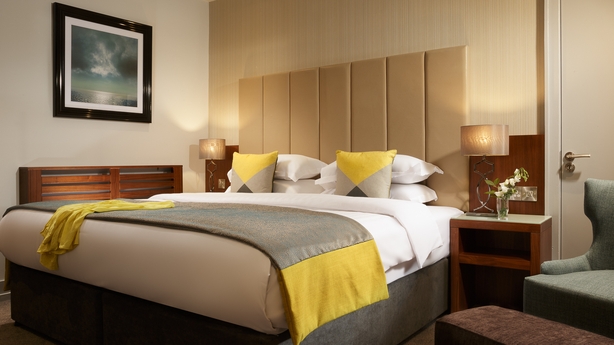Over 80% of hoteliers have said that rising insurance costs are having a significant negative impact on their business, according to an industry survey published by the Irish Hotels Federation.
Insurance costs are set to reach €60m this year and the IHF said that insurance is costing the equivalent of €1,000 a room annually.
Joe Dolan, president of the IHF, said that rising premiums and a growing compensation culture are having a detrimental impact on cost competitiveness within the sector.
"This is one of the greatest challenges facing our sector after Brexit and needs to be addressed urgently," Mr Dolan said as the federation holds in annual conference at the Slieve Russell Hotel in Co Cavan.
Mr Dolan said the priority is now is the swift implementation of the recommendations and conclusions of the Cost of Insurance Working Group (CIWG) on employer and public liability insurance costs.
Among the CIWG’s recommendations are the examination of the feasibility of legislating for a cap on the level of damages awarded in personal injury cases.
Mr Dolan said that capping damages would significantly help in ensuring consistency in the level of awards that are made while also giving some certainty as to the likely cost of taking a claim to court.
"Currently it's like writing a blank cheque. We believe a cap would encourage insurance companies to take more cases to court, rather than settling them quickly, as happens too often now and to the detriment of our members," he stated.
He also pointed to the current overly-adversarial nature of expert medical evidence, which he said is another major contributor to the excessive cost of litigation and needed to be tackled to drive down costs.
Meanwhile, Irish hotels saw their seventh consecutive year of growth in visitor numbers in 2017, new figures from the Irish Hotels Federation show.
Occupancy rates across hotels improved by a single percentage point to 73%, the highest for 12 years.
The IHF said the growth in visitor numbers from the US and continental Europe, as well as from the domestic market, helped to offset the drop in visitors from the UK as sterling weakened.
Total tourism revenue also grew during 2017 to more than €8.75 billion, an increase of 6% on the previous year.

Tim Fenn, the chief executive of the Irish Hotels Federation, said the outlook for the sector remains positive with hoteliers confident about the future growth of the tourism and hospitality sector.
Mr Fenn said the industry is on track to create a further 40,000 tourism jobs by 2021, in addition to the over 60,000 new jobs that have already been created since 2011.
He noted that the tourism industry is the country's largest indigenous employer, supporting about 230,000 jobs - equivalent to 11% of total employment. About 60,000 of these jobs in the hotel sector alone.
But Mr Fenn noted that not every tourism business is enjoying the same level of success and the recent weakness in sterling leaves no room for complacency.
"Last year international arrivals into Europe grew by 6%. However in Ireland our overseas numbers grew by just 3%, compared to an increase of 9% the previous year," he stated.
Mr Fenn also said the substantial fall in UK visitor numbers last year - Ireland's largest market - shows just how vulnerable the tourism industry is to volatility in other economies.
"The UK has the widest seasonal and regional spread of all our markets, with rural tourism, which has only recently begun to enjoy the recovery in any real measure, the most vulnerable. 80% of the flights into Knock airport last summer originated in the UK compared to 56% into Cork and 37% into Dublin," he noted.
However, Mr Fenn also said that over 90% of hotels are planning capital expenditure programmes this year, mainly in the area of refurbishment.
He said the industry is seeing increased investment in new rooms, especially in Dublin, which is the most popular entry point into Ireland for overseas visitors.
"We expect to see a further 1,000 rooms come on stream in the city this year with an additional 2,000 in 2019 and between 1,000 - 2,000 in 2020. Overall, there is an hotel investment pipeline of €1 billion in Dublin city," he said.

